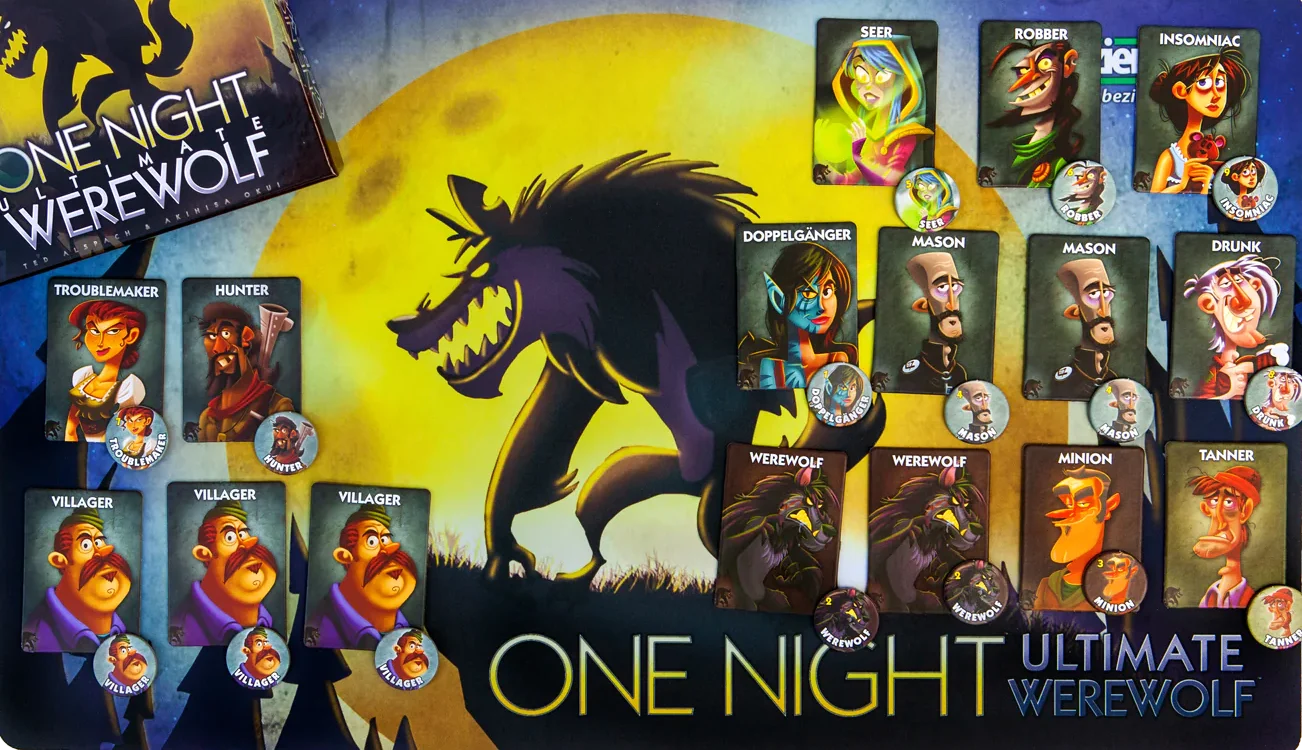One-Night Ultimate Werewolf (ONUW) is a fast-paced game with social deduction mechanics featuring a single-round format, the absence of a moderator, and multiple victory conditions, creating a dynamic and engaging gameplay experience. The premise of ONUW is that villagers must try to vote out werewolves, and werewolves must try to stay alive.
The card game was created by Ted Alspach and published by Bezier Games. For the Critical Play, I played ONUW on my laptop using netgames.io, a website created and maintained by Luke Tsekouras. While the physical game’s box states it is recommended for players of age 14+, I believe it can be played by individuals of age 8+. It appeals to a broad audience and is likely most commonly played during parties and gatherings of families and young adults.
An interesting mechanic of ONUW is its unique structure with a single round format, underscoring the name, “One-Night.” Players are dealt random roles and experience a condensed gameplay cycle where they sleep, special roles awaken to act during the night, all players wake up to discuss, and they vote before the game promptly ends. This gameplay cycle not only speeds up the game but also positions players into immediate social deduction scenarios. Players are compelled to employ their analytical skills from the get-go, since there is no possibility of subsequent rounds. This means every conversation and decision has heightened significance, and this intensifies the pressure on players to deduce both their allies and opponents.
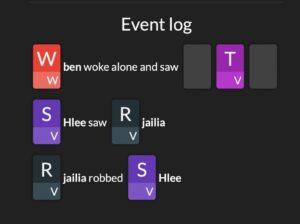
Furthermore, the browser version of ONUW incorporates a five-minute discussion timer, adding an additional layer of urgency and reinforcing the dynamic of pressure. The time constraint ensures that players must quickly reach a consensus before the voting round begins, as the timer cannot be extended beyond the allocated time.
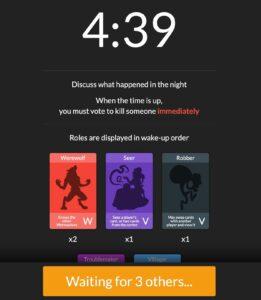
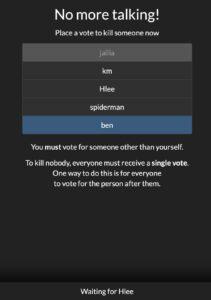
Another crucial mechanic of ONUW is the absence of a moderator, which places every single player at the forefront of action. The lack of a moderator shifts the responsibility onto the players themselves to catalyze discussion and spark debate, fostering an environment where social deduction thrives on the active engagement of all players. In addition, unlike similar games like Mafia, ONUW guarantees full participation from all players throughout the entire duration of the game, as no one is eliminated until the game ends.
Although the absence of a moderator enhances player autonomy and is more inclusive of all players, it also presents a hurdle in initiating gameplay. In my initial rounds of ONUW, I hesitated to be the first to contribute during the discussion phase. This hesitancy stemmed from my fear of potential scrutiny and culpability, as well as the difficulty of engaging other players that may not be as forthcoming. To address this challenge, I propose that the game include optional prompts to kickstart discussion. The lack of active discussion before voting can diminish the social deduction element of ONUW, leading to stagnant gameplay that detracts from the game’s overall enjoyment and depth.
Lastly, ONUW has the mechanic of multiple victory conditions, dependent on the roles dealt to players. There are four possible outcomes: villagers win, werewolves win, nobody wins, and Tanner (a specific role) wins. Since the roles of players can be switched throughout the night, players are faced with uncertainty regarding both their own identity and those of their fellow players. The uncertainty requires strategic gameplay and necessitates teamwork as players navigate the complexities of assuming different roles, defending their innocence, and assessing trustworthiness. Thus, beyond the realm of social deduction, ONUW demands cooperation and trust among players to achieve success amidst the diverse possible outcomes.
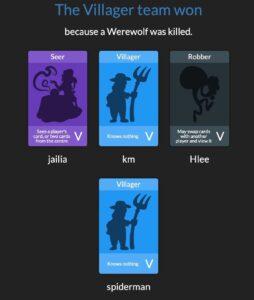
During my experiences playing ONUW, the most intriguing scenario unfolded when no werewolves were present. In this unique situation, the success of the villagers was dependent on them abstaining from voting, opting instead to vote in a circular fashion and granting each player a single vote. However, this strategy proves more challenging than anticipated. In my instance playing in this scenario, we, the villagers, ultimately failed as we eliminated an innocent player. This led to the aforementioned outcome of nobody winning, and lots of comments from other players, like “That’s kinda dumb” and “How could we trust that she has been a villager three times now?” This is a clever twist devised by the game creators that shifts the villagers’ goal from identifying werewolves to cultivating alliances among themselves. In this compelling dynamic, victory is not so much the primary objective, but instead, the game evolves into a narrative of fellowship and reliance on trust among the players.
In summary, ONUW stands out as a fast-paced yet intricate social deduction game transcending the conventional “villagers versus bad guys” narrative. Its compelling gameplay mechanics, including its single-round format, involvement of all players with unique roles, and diverse victory conditions, ensure an engaging gameplay experience.


